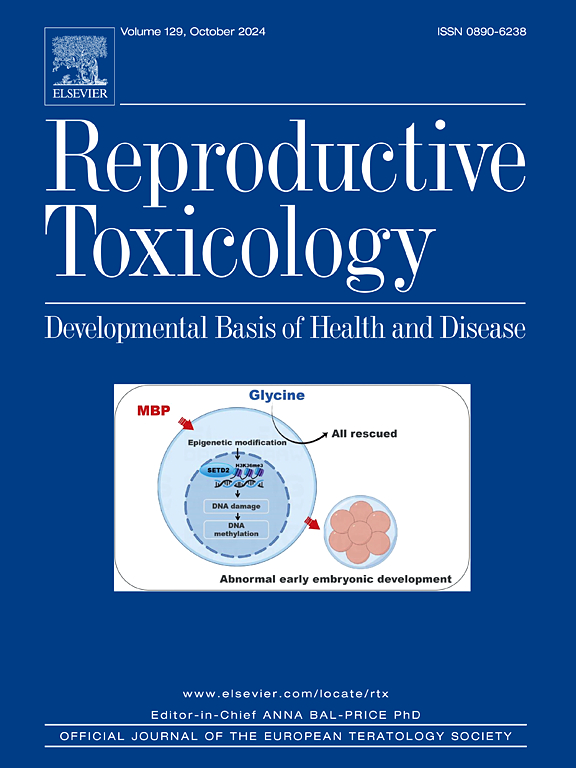钙通道阻滞剂对精子功能影响的系统综述。
IF 3.3
4区 医学
Q2 REPRODUCTIVE BIOLOGY
引用次数: 0
摘要
本研究探讨了钙通道阻滞剂(CCBs)对精子功能的影响,精子功能是男性生育能力的一个关键方面。男性不育占不育病例的30-50%,通常涉及精子活力和获能问题,这两者都受到钙离子和特定离子通道(如CatSper和电压依赖性钙通道(VDCCs))的严重影响。CCBs通常用于治疗心血管疾病,它会抑制这些钙通道,潜在地破坏精子功能。全面的文献综述显示出不同的结果:一些研究表明硝苯地平等CCBs降低精子活力和顶体反应,导致可逆性不孕,而另一些研究发现对IVF治疗的受精率没有显著影响。支持这些发现的动物研究表明,CCBs损害精子发生和精子功能,但不一定影响激素水平。研究表明,CCBs对男性生育能力的影响可能是可逆的,强调需要更广泛的体内研究来进一步了解这些影响及其对CCBs治疗患者的临床意义。本文章由计算机程序翻译,如有差异,请以英文原文为准。
Systematic review of the impact of calcium channel blockers on sperm function
This study explores the effects of calcium channel blockers (CCBs) on sperm function, a critical aspect of male fertility. Male infertility, responsible for 30–50 % of infertility cases, often involves issues with sperm motility and capacitation, both of which are heavily influenced by calcium ions and specific ion channels like CatSper and voltage-dependent calcium channels (VDCCs). CCBs, which are commonly prescribed for cardiovascular conditions, inhibit these calcium channels, potentially disrupting sperm function. A comprehensive literature review showed varied results: some studies demonstrated that CCBs such as nifedipine reduce sperm motility and the acrosome reaction, causing reversible infertility, while others found no significant impact on fertilization rates in IVF treatments. Supporting these findings, animal studies indicated that CCBs impair spermatogenesis and sperm function without necessarily affecting hormonal levels. The research suggests that the impact of CCBs on male fertility might be reversible, emphasizing the need for more extensive in vivo studies to further understand these effects and their clinical significance for patients on CCB therapy.
求助全文
通过发布文献求助,成功后即可免费获取论文全文。
去求助
来源期刊

Reproductive toxicology
生物-毒理学
CiteScore
6.50
自引率
3.00%
发文量
131
审稿时长
45 days
期刊介绍:
Drawing from a large number of disciplines, Reproductive Toxicology publishes timely, original research on the influence of chemical and physical agents on reproduction. Written by and for obstetricians, pediatricians, embryologists, teratologists, geneticists, toxicologists, andrologists, and others interested in detecting potential reproductive hazards, the journal is a forum for communication among researchers and practitioners. Articles focus on the application of in vitro, animal and clinical research to the practice of clinical medicine.
All aspects of reproduction are within the scope of Reproductive Toxicology, including the formation and maturation of male and female gametes, sexual function, the events surrounding the fusion of gametes and the development of the fertilized ovum, nourishment and transport of the conceptus within the genital tract, implantation, embryogenesis, intrauterine growth, placentation and placental function, parturition, lactation and neonatal survival. Adverse reproductive effects in males will be considered as significant as adverse effects occurring in females. To provide a balanced presentation of approaches, equal emphasis will be given to clinical and animal or in vitro work. Typical end points that will be studied by contributors include infertility, sexual dysfunction, spontaneous abortion, malformations, abnormal histogenesis, stillbirth, intrauterine growth retardation, prematurity, behavioral abnormalities, and perinatal mortality.
 求助内容:
求助内容: 应助结果提醒方式:
应助结果提醒方式:


